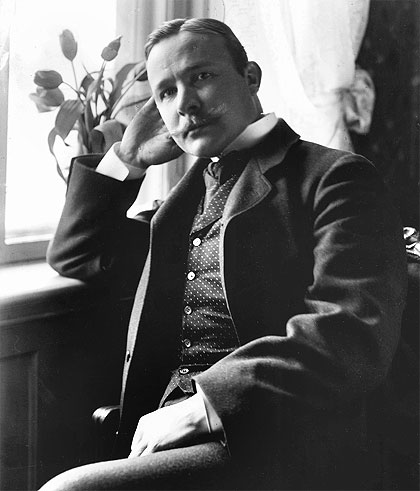Why was Erik Axel Karlfeldt Awarded the Nobel Prize for Literature in 1931?
Unraveling the Nobel Recognition: Erik Axel Karlfeldt's Poetic Genius
In 1931, the Nobel Prize for Literature was awarded to the Swedish poet Erik Axel Karlfeldt, recognizing his significant contributions to the world of poetry and literature. Karlfeldt’s mastery of verse and his profound connection to nature and Swedish rural life set him apart as a remarkable poet, making him a deserving recipient of this prestigious honor.
1. Reverence for Nature:
One of the primary reasons for Karlfeldt’s Nobel Prize win was his deep reverence for nature. His poetry beautifully captured the essence of the Swedish countryside, portraying its landscapes, seasons, and rustic life with exquisite detail and imagery. Karlfeldt’s ability to evoke a sense of wonder and awe for the natural world resonated with readers and instilled in them a renewed appreciation for the beauty of nature.
2. Traditional Swedish Folklore:
Erik Axel Karlfeldt drew inspiration from traditional Swedish folklore and ballads, infusing his poems with elements of myth and legend. By incorporating folk traditions into his verse, Karlfeldt’s poetry became a reflection of Swedish cultural heritage and identity, making it relatable and cherished by his fellow countrymen.
3. Mastery of Verse:
Karlfeldt’s poetic skill and versatility were exemplary. He excelled in various poetic forms, including sonnets, odes, and lyrical poetry. His command of rhythm, rhyme, and meter showcased his technical proficiency as a poet. The seamless blending of musicality and meaning in his works made them a pleasure to read and recite.
4. Preservation of Swedish Language:
Erik Axel Karlfeldt’s poetry played a crucial role in preserving and promoting the Swedish language. In an era when Swedish literature faced influences from other languages, Karlfeldt’s commitment to using his native tongue and reviving archaic Swedish words and expressions endeared him to the hearts of his fellow countrymen.
5. Literary Advocacy:
Apart from his own poetic achievements, Karlfeldt contributed significantly to the Swedish literary community. He served as a member of the Swedish Academy, where he supported and advocated for fellow writers and poets. His dedication to the promotion of literature and the recognition of literary talent endeared him to the literary establishment.
6. Posthumous Recognition:
Tragically, Erik Axel Karlfeldt passed away in 1931, just a few months before being awarded the Nobel Prize for Literature. The posthumous recognition of his literary contributions added an element of poignancy to the accolade, highlighting the enduring impact of his work even after his untimely demise.
In conclusion, Erik Axel Karlfeldt’s Nobel Prize for Literature in 1931 was a tribute to his poetic brilliance, his profound connection to nature and Swedish folklore, and his dedication to preserving the Swedish language and literary heritage. His ability to capture the essence of the Swedish countryside and his mastery of verse made him a beloved figure in Swedish literature. Karlfeldt’s recognition with the Nobel Prize remains a fitting tribute to a poet who immortalized the beauty of nature and the spirit of his homeland through his evocative and timeless poetic works. His legacy endures, inspiring poets and readers to find solace and inspiration in the wonders of the natural world and the power of the written word.





